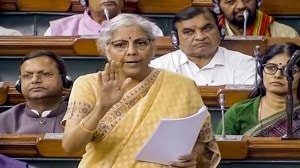
CBSE
The Central Board of Secondary Education (CBSE) is a national-level educational board in India for public and private schools, controlled and managed by the Union Government of India. Established in 1962, the CBSE is one of the most prominent education boards in the country and is responsible for conducting various school-level examinations.
Key Functions and Responsibilities of CBSE:
- Curriculum Development: CBSE designs the curriculum and syllabus for various classes, ensuring a standardized and high-quality education system across its affiliated schools.
- Affiliation of Schools: CBSE grants affiliation to schools in India and abroad, subject to certain conditions and quality standards. Schools affiliated with CBSE follow the board’s curriculum and guidelines.
- Conducting Examinations: CBSE conducts various examinations, including the Class 10 and Class 12 board exams, the All India Pre-Medical Test (AIPMT) for medical entrance, the Joint Entrance Examination (JEE) for engineering entrance, and the National Eligibility cum Entrance Test (NEET) for medical courses, among others.
- Publication of Results: CBSE is responsible for the timely declaration of examination results. Results for board exams and other competitive exams conducted by CBSE are published on its official website.
- Scholarship Programs: CBSE offers various scholarship schemes and awards to meritorious students to encourage academic excellence.
- Teacher Training and Development: CBSE organizes workshops, training programs, and conferences for teachers to enhance their professional skills and teaching methodologies.
- Research and Development: CBSE engages in research and development activities to improve the education system, update the curriculum, and introduce innovative teaching methods.
- Quality Control and Standardization: CBSE ensures the quality of education in its affiliated schools by setting standards and guidelines. Regular inspections and assessments are conducted to maintain the quality of education.
- Innovation and Integration of Technology: CBSE promotes the integration of technology in education and encourages schools to adopt modern teaching methods, digital resources, and e-learning platforms.
- Educational Initiatives: CBSE initiates various programs to promote holistic education, including initiatives related to sports, arts, social awareness, and environmental education.
CBSE’s mission is to provide a balanced and uniform academic structure for students across India. It strives to equip students with the necessary skills and knowledge to face challenges in the rapidly changing world while nurturing their overall development. Please note that specific policies and initiatives might have evolved since my last update in September 2021, so it’s advisable to refer to the official CBSE website or contact CBSE directly for the most recent and detailed information.
Read More
Related News























